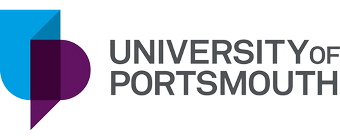This MSc course aims to provide students with the necessary abilities to flourish in both sports and professional settings. It addresses applied monitoring methodologies, practical skills, research experience, and scientific principles for performance enhancement. Students will also learn how to incorporate contemporary themes such as inclusivity and ethical behavior. The course also delves into the utilization of new technology and innovation to improve human performance, as well as how environmental factors influence work and athletic performance. The course is now endorsed with conditions, making the University of Portsmouth the first in the country to earn this designation. The training emphasizes applicable performance in sports and occupational settings. For those interested in a clinical course, the Master's in Clinical Exercise Physiology or Physiotherapy (Pre-registration) is available.

University of Portsmouth
MSc Sports Performance
Entry Requirements
- A minimum of a second-class honours degree or equivalent in a relevant subject.
- Applicants who hold a non-related degree will be considered on a case-by-case basis.
- For those who do not hold a degree or relevant professional qualification, extensive experience together with evidence of scholarly ability will be required.
- English language proficiency at a minimum of IELTS band 6.5 with no component score below 6.0.
Career Prospects
Graduates of this program may pursue employment in research, sports development, science support, and health and fitness. They can also earn a PhD in Sport, Exercise, and Health Science or Sport and Exercise Psychology. Postgraduates can engage in a variety of fields, including fitness and health management, sports physiology, personal training, sports coaching, wellness personal training, and scientific research. They may also work with Lotus Strength and Fitness, Nuffield Health, English Institute of Sport, Qinetiq, or the Defence Science and Technology Laboratory.
Course Details
Master's degree students may face more demands due to work or family responsibilities. The course structure includes on-campus or online lectures, seminars, and self-directed study. Hands-on practical components, including laboratory practicals and using information technology, are encouraged. Full-time students should allocate 37 hours per week to their studies, equivalent to a full-time job, while part-time students should allocate around 18 hours per week.
Studies include teaching time, course work, independent learning, and assessments. Teaching is on-campus and in person over two teaching blocks (September to January and January to May). The Research Development and Practice project is typically developed and realized across both blocks, with an increasing emphasis towards the end of the studies.
Master's study is deeper and more specialized than an undergraduate degree, allowing students to focus on something important to them and their career. Independent study and research are more common, with most teaching time being in-person and face-to-face. Interactive workshop sessions are mainly taught.
Assessment methods include practical and written exams, laboratory reports, role plays, presentations, and projects. Students can test their skills and knowledge informally before undergoing assessments that count towards their final mark. Feedback on practice and formal assessments can be incorporated as students progress through the modules to their final project.
Course Modules
Applied Sports Physiology - 30 credits
Current Concepts in Sport and Exercise Performance - 30 credits
Humans in Extreme Environments - 30 credits
MSc Research Development and Practice - 60 credits
Technology and Performance in Sport and Exercise - 30 credits
Are you ready to start building your future?
Contact our admission counseller and get a free consultation.













